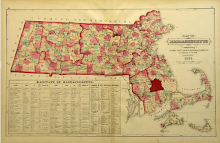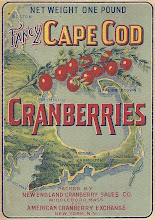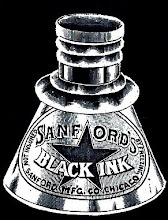[This act, having been “found useful and beneficial”, was extended by the legislature in 1753 to the end of the next session of the General Court. See Laws of 1752-53, Chapter 17, “An Act for Reviving and Continuing of Sundry Laws that are Expired or Near Expiring.”] [The Acts and Resolves, Public and private, of the Province of the Massachusetts Bay to Which are Prefixed the Charters of the Province, with Historical and Explanatory Notes, and an Appendix. Volume III (Boston: Commonwealth of Massachusetts, 1878), p. 647]. It was again extended see Province Laws, 1760-61, Chapter 21.
Monday, July 28, 2014
Colonial Alewife Laws
Beginning in 1735 colonial laws in Massachusetts sought to protect the spawning runs of river herring that appeared in the commonwealth's rivers each spring, ensuring that adequate passage was provided for their upstream run. The Herring River in Sandwich was the first river in Massachusetts whose herring population was specifically protected. The Nemasket was the second. In 1749 the first law specific to the Nemasket River herring was passed and it governored the means and manner in which herring could be taken. The law also established strict penalties that were to be meted out to violators, including the whipping of children and servants, confinement in public stocks or imprisonment.
ACTS OF 1749-50, CHAPTER 12
AN ACT TO PREVENT THE UNNECESSARY DESTRUCTION OF ALEWIVES IN THE TOWN OF MIDDLEBOROUGH.
WHEREAS there are great quantities of the fish called alewives, that pass up the rivers and brooks in the town of Middleborough to cast their spawn; and notwithstanding the penalties annexed to the many good and wholesome laws of this province already made to prevent the destruction of alewives, yet many ill-minded and disorderly persons are not deterred therefrom, —
Be it therefore enacted by the Lieutenant- Governour, Council and House of Representatives,
[Sect. 1.] That whoever shall presume to take any of the said fish in the aforesaid rivers or brooks, or any part thereof, by any ways or means whatever, at any other place than at the old Stone Ware, so called, in Namasket River in said town, and at such place in the brook called Assawampset[t] Brook, in said town, as the inhabitants thereof shall vote and order, such person shall forfeit the sum of forty shillings; and the scoop-net or other instruments with which such person may take the said fish, shall be forfeited.
And whereas some persons who may disguise themselves, and others who may be unknown, may take or attempt to take the said fish at other places than at the aforesaid Stone Ware and Assawampsett Brook, and may refuse to discover their names, places of abode and occupations, by which means the prosecution of such offenders may be prevented, and the good design of this act be defeated; and there being some passages of said rivers and brooks that are much narrower than others, and by reason thereof the course of the said fish may be more easily stopped by canoes and other obstructions, —
Be it therefore further enacted,
[Sect. 2.] That if any person or persons, who maybe unknown, shall take or attempt to take any of the aforesaid fish in any other part place of said rivers and brooks than those before mentioned, it shall be in the power of any of his majesty's justices of the peace of the county of Pl[i][y]month, on his own view, to examine such person or persons concerning their names, places of abode and occupations; or in case no justice of the peace may be present, then it shall be lawful for any sheriff or deputy sheriff of said county, or constable of the aforesaid town, or two or more persons who may be present at their so taking or attempting to take the said fish, to convey such offender immediately before any of his majesty's justices of the peace for the said county, to be examined as aforesaid ; and on such offender's refusal to give an account of bis or their names, places of abode and occupations, such justice may commit him or them to his majesty's goal in said county, until [l] they give such account, unless such offenders will forthwith pay the aforesaid penalty' of forty shillings. And whoever shall presume to fasten or keep any canoe or canoes or other obstructions within or nigh any narrow passage, or the middle of said river[s] or brooks, so that it may be reasonably thought that the course of the said fish may be thereby obstructed, such person or persons shall forfeit the sum of ten shillings for every hour such obstruction shall continue ; and in case it doth not appear how it might have been made, then it shall be in the power of any justice of the peace of said county to order it to be removed.
And be it further enacted,
[Sect. 3.] That no person shall be disqualified as a witness in order to any conviction upon this act, by reason of his or her being an inhabitant of said town.
And be it further enacted,
[Sect. 4.] That when any children or servants shall offend against this act, or any part thereof, they shall be punished by whipping, not exceeding five stripes, setting in the stocks not exceeding two hours, or imprisonment not exceeding twenty-four hours, at the discretion of the court or justices before whom the conviction may be, unless such offenders, by themselves, their parents or masters, or others on their behalf, shall forthwith pay the forfeiture aforesaid : such parents or masters being notified of such conviction forty-eight hours before said punishment be inflicted.
[Sect. 5.] All the penalties and forfeitures in this act mentioned to be disposed of, one moiety to the use of the poor of the said town, and the other moiety to the informer, to be recovered on information or complaint before any justice of the peace of the afores[ai]d county, where the penalty may not exceed forty shillings. And such justice is hereby impow[eired to issue his warrant for apprehending such offender or offenders, and upon conviction, to restrain or commit the offender or offenders to his majesty's goal aforesaid, until [l] the fine imposed for such offence be satisfied, or cause the same to be levied by distress and sale of the offender's goods, returning the overplus, if any there be. And where the penalty may exceed the sum of forty shillings, then it may be recovered by action, bill, plaint or information, in any court proper to try the same.
And be it further enacted,
[Sect. 6.] That the manner, rules and methods of conviction of offenders against this act, may be the same as are directed and provided in and by an act made in the twelfth year of the reign of his late majesty King George, [e][i]ntitled "An Act in addition to and for rendring more effectual an act made in the tenth year of the reign of King William the Third, [e][i]ntitled ' An Act for preventing of trespasses.'"
[Sect. 7.] This act to continue in force for the space of three years from its publication, and no longer. [Passed December 23,* 1749 ; published January 9, 1749-50.
[The Acts and Resolves, Public and Private, of the Province of the Massachusetts Bay to Which are Prefixed the Charters of the Province, with Historical and Explanatory Notes, and an Appendix. Volume III (Boston: Commonwealth of Massachusetts, 1878), p. 483].
[This act, having been “found useful and beneficial”, was extended by the legislature in 1753 to the end of the next session of the General Court. See Laws of 1752-53, Chapter 17, “An Act for Reviving and Continuing of Sundry Laws that are Expired or Near Expiring.”] [The Acts and Resolves, Public and private, of the Province of the Massachusetts Bay to Which are Prefixed the Charters of the Province, with Historical and Explanatory Notes, and an Appendix. Volume III (Boston: Commonwealth of Massachusetts, 1878), p. 647]. It was again extended see Province Laws, 1760-61, Chapter 21.
ACTS OF 1764-65, CHAPTER 10
AN ACT IN ADDITION TO THE ACT ENTITLED "AN ACT TO PREVENT THE UNNECESSARY DESTRUCTION OF ALEWIVES, IN THE TOWN OF MIDDLEBOROUGH.
WHEREAS, in and by the act intituled "An Act to prevent the unnecessary destruction of alewives in the town of Middleborough," made in the twenty-second year of his late majesty King George the Second, all persons are prohibited taking or catching alewives within the town of Middleborough, save at the old Stone Ware, so called, in Namasket River, and at such place in Assawampset Brook as said town should appoint; and whereas the prohibition aud restriction aforesaid has been found inconvenient; therefore, —
Be it enacted by the Governor, Council and House of Representatives,
[SECT. 1.] That during the season wherein alewives shall pass up said Namasket River, to spawn, in the year one thousand seven hundred and sixty-five, it shall be lawful for the inhabitants of said town of Middleborough to catch alewives at or near the place where the slitting-mill now stands, on the said river, on the Mondays, Tuesdays and Wednesdays of every week; liberty of taking fish there being first obtained from the owner or owners of said mill.
Provided, nevertheless,—
[SECT. 2.] That it shall be lawful for said town, at a legal meeting of the inhabitants, to dispose of and grant, for that year, the sole priviledge of catching alewives, on the da3's of the week abovementioned, at or near the mill aforesaid, (liberty therefor being first obtained of the owners as aforesaid), to such person or persons as shall ofier most for the same, and give sufficient security, forthwith, for payment of the sum offered, at such time and in such manner as the inhabitants of said town shall assign and order, either by themselves, at a town-meeting, or by such as they shall appoint and authorize for that purpose.
And he it further enacted,
[SECT. 3.] That no purchaser of the priviledge aforesaid shall receive for any alewives that may be there caught, more than one shilling for each hundred of said fish, and so pro rata, for any less or greater number.
And be it further enacted,
[SECT. 4.] That any purchaser of the priviledge aforesaid, who shall take or catch any of said fish at or near the mill aforesaid, or shall allow or connive at any other person taking any such fish there, at any other time than that limited for that purpose as aforesaid, and every other person whosoever that shall catch any such fish on any days other than those herein beforementioned, whether the priviledge aforesaid shall have been disposed of to any particular person or persons or not, shall forfeit and pay the sum of five pounds, and costs of suit, to him or them who shall sue therefor in any court proper to try the same. [Passed June 14.
ACTS OF 1765-66, CHAPTER 24
AN ACT FOR REVIVING AND CONTINUING AN ACT MADE IN THE FOURTH YEAR OF HIS PRESENT MAJESTY KING GEORGE THE THIRD, INTITLED " AN ACT TO PREVENT THE UNNECESSARY DESTRUCTION OF ALEWIVES IN THE TOWN OF MIDDLEBOROUGH.
WHEREAS an act made in the fourth year of his present majesty's reign, intitled "An Act in addition to the act intitled 'An Act to prevent the unnecessary destruction of alewives in the town of Middleborough,' " has been found useful and beneficial, and is now expired, —
Be it therefore enacted by the Governor, Council and House of Representatives,
That the said act, in all and every article, clause, matter and thing, be and is hereby revived, and shall be in full force until the twentysixth of October, which will be in the year of our Lord one thousand seven hundred and sixty-seven. [Passed October 31]
Image: Acts of 1765-66, AN ACT FOR REVIVING AND CONTINUING AN ACT MADE IN THE FOURTH YEAR OF HIS PRESENT MAJESTY KING GEORGE THE THIRD, INTITLED " AN ACT TO PREVENT THE UNNECESSARY DESTRUCTION OF ALEWIVES IN THE TOWN OF MIDDLEBOROUGH.
Subscribe to:
Post Comments (Atom)























+of+Smoky+Mountains+018.jpg)
0 comments:
Post a Comment